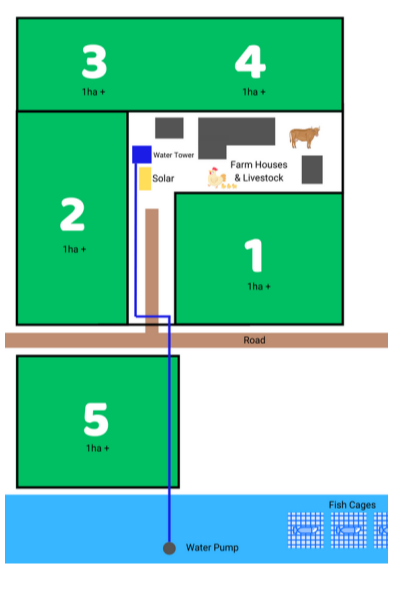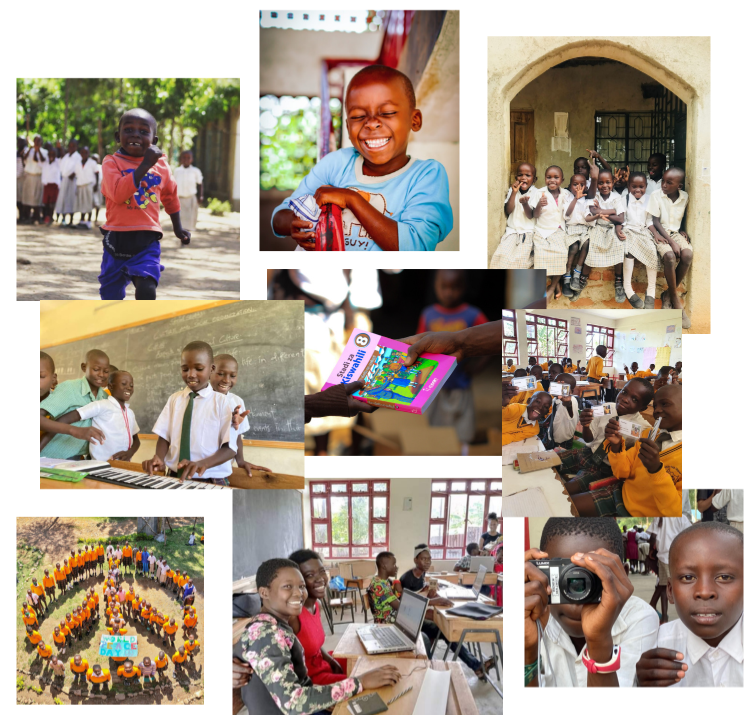
Youth Empowerment Program Initiative (YEPI)
May 11, 2023
Girls and Young Women in Human Rights Advocacy Award 2023
August 21, 2023Korando Faith Foundation (KFF)
About Us
The Dolfine Korando Faith Foundation began as a Widows and Orphans women group in 1997. The group was formed by 10 widows and 5 orphans coordinated by Mrs. Dolfine Oliech (Mama Dolfine) and aimed to solve problems of widowhood and orphans and vulnerable children (OVCs).
To achieve this goal the group empowered the beneficiaries by providing income-generating activities to widows and educating the OVCs. A non-formal ECD and primary school was then set up in 2006, adding to a boarding program of the most vulnerable kids staying within the center. In 2013 the CBO was transformed into an NGO with a keen interest in the provision of education, basic needs, and loving care.
Today the school is registered as an APBET (Alternative provider of basic education and training) and we have since grown our wings, by accommodating more children into the program and getting more involved in other empowering activities. Currently, we reach over 350 children within the community through our school and stipend program. According to our holistic approach, we provide mentorship, vocational training, and community empowerment in addition to formal education.
Together with extensive involvement in community empowerment programs, we aim to make an impact and create a big family as we strive to achieve sustainability to assure a brighter future for the children and the community.
We are located in Mombasa behind Posta Ganjoni and are active in several cities around Kenya, such as: Mombasa, Nairobi, Lamu, Nakuru
VISION:
Each child has the opportunity to literacy, social and economic empowerment, and spiritual nourishment for a better tomorrow.
MISSION:
To uplift and support the local community through support of the OVCs by introducing programs aimed at providing education, vocational training, spiritual mentorship, healthcare, food, and shelter to achieve a responsible, socially, and economically empowered individual.
Our Programs
Our main project is the provision of literacy, where we offer free quality education to orphans and vulnerable children in our APBET primary school who are in number. Despite the government declaring free primary education, there are still many costs parents have to burden that beats the logic of free. We, therefore, offer this special program for the OVCs, with zero costs for the parents, and targeting the neediest who when we support, we get to make a difference. Alongside this due to the vulnerability in the homes, we have a boarding and feeding program to enable us to provide basic needs and loving care.
We also have a bursary program for our high school students who are in number and college students of, where we pay fees to respective government institutions they have qualified for. Alongside education, through camps and workshops, the children are also taught ideals of respect and love, mindset training, environmental awareness, spiritual nourishment, social and economic empowerment. They also get to engage in mentorship sessions and community solutions projects such as the Technovation Challenge. Inspiring a generation of problem solvers in the community, using technology and available resources is crucial towards creating a better world and attaining Sustainable development goals (SDGs). Ensuring the transition of a child from primary school to high school and into college through our bursary support helps us achieve our goal of using education as a tool for change. It is, therefore, our wish that all these programs enable us to achieve a socially and economically empowered individual, ready to create more change in society.
Our programs currently reach a total of Over 450 children. The APBET primary school supports 298 children from kindergarten to primary 8 to JSS, all currently fully supported in the program. Our Bursary program has 138 secondary school students, who are sponsored in various secondary schools across the country providing ample standard of recommended quality education. 21 students are sponsored in colleges and universities.
Boarding & Feeding

The situation in the community is severe. We have cases where a cup of porridge at the school acts as a meal to the child. We also have cases where at home, the extreme poverty and low levels of income make affording one meal luxury. This made us initiate a feeding program at break time known as the Uji (Porridge) Feeding program. This program is for all primary school children, and the Uji is made with components that have nutritional value.
However, due to high costs and limited budget, we are able to provide lunch and dinner to boarding children only. Reviving the energy of the children and getting them ready for learning brings us all the joy. Being able to beat hunger as we provide education is a priceless achievement that’s getting a long way in even improving the health of our children.
We also have a boarding section providing a home to 100 Individuals. Here they are provided with breakfast, lunch, and dinner, medical cover, and access to quality education. From our household assessments, some homes are just not favorable for the children. We encounter extreme cases of children going hungry, facing neglect, and being unable to attend school, as they cannot afford it. Therefore, it is the least we can do in providing a home. We also have a set of children who are day scholars yet cannot afford any meal at home. We therefore provide the usual Uji and give lunch to these extremely needy cases who only can see the next days meal when they come to school again the following day. As an institution, being aware of such extreme conditions makes us wish to spread our lunch and dinner program to serve all of the children.
The boarding section enlightens by the new school culture and serve as a safe haven for beneficiaries coming from far away in Nyanza and very demanding backgrounds. While the children are boarding, DKFF actively work together with the households to ensure that the children are able to re-integrate into their households if possible. We are Increasing the organizational capacity of DKFF for a sustainable future by building our organizational capacity in terms of educational expertise, vocational training, administration and fundraising, retain staff and provide a conducive working atmosphere.
The Farm
Creating Local Sustainability
We have a farm of 15 acres located in Sakwa Bondo close to the lake. This place acts as a savior to the organization as it is our major local resource station apart from our partner donors. It also acts as a second home to some of our children experiencing severe cases at home and takes a longer time integrating back into their families. At the farm, we mostly grow maize, beans, and vegetables and sometimes even fruits such as watermelons. The produce sometimes is good and sometimes it is low. However, challenges such as low rainfall, pests and diseases, and high costs of production still set us far much behind in the goal to make the project sustainable

The harvest from the farm, therefore, sustains our very demanding feeding program and also helps us save some money for our boarding section and college fees. It is therefore our dream to make the program sustainable through the Farm. As a sign of strength, hope, and security to the foundation, a plan to integrate solar pumps, tanks, and a drip irrigation system, would not only improve its efficiency and production, but also enable us to sustainably support and grow our programs and impact.
Impact
The organization has worked with several partners and impacted over 1,000 beneficiaries. Some of the beneficiaries also include organizations such as Better Me Kenya and Homeless of Kisumu that DKFF has hosted since inception and guided towards sustainability. The ripple effects has seen DKFF spread its wings to impact over 300 childrenin high school and over 500 children directly impacted in the streets of Kisumu.

Proposal
As an organization, we depend on donors, well-wishers, and periodic material donations. At the moment, we have well-wishers committed to supporting our high school bursary and part of our primary school project. We are however still unable to sustain most of the projects left entirely under our umbrella as an institution. The boarding and feeding section has a lot of needs from the regular basic requirements that range from sanitary towels, nets, beds, mattresses, beddings, and even food that can sustain the entire feeding program. It’s limited and despite the difficulty of the kids to afford a meal and also coming from very vulnerable homes, we are only able to feed a limited number and provide a second home to a few.
We are also struggling to keep up with our college bursary programs, which ensure a continuation of the primary and high school journey of excellence we set our kids on. As an institution, we are looking towards a goal of sustainability as a program. Our goal is to be able to take care of some needs mostly urgent and keep the projects running with a key aim of getting more children on board with the feeding and education program. The school is an active project, and we still have needs such as a new boarding facility and more resources to run the school from books, computers, and teaching equipment.
Our savior, which has been consistent in providing food and support is also becoming a liability comparing costs of production and the output, and it’s, therefore, our goal to make it more efficient using solar pumps to get water from the lake, piping, tanks, boreholes and drip irrigation systems to lower the costs input and increase production. This way, we have enough food for our feeding program and even a surplus for the market. We will also save a lot of money that could be channeled to sustain our other projects.
DKFF runs several projects, literacy, boarding, feeding, workshops, and farming all with a goal of empowerment and poverty alleviation. Therefore as an interested party, well-wisher, or donor, in line with your area of expertise, value, and interest, we humbly request your support in keeping the hopes alive in our children and providing a better tomorrow both for the kids and the community. Join us and support either the feeding, boarding, school, bursary, and farm programs, and let’s make the world a better place one step at a time.
Contact Details
Email: pamabila8125@gmail.com
Phone Number: +254 723 686 378
Website: www.korando.org





